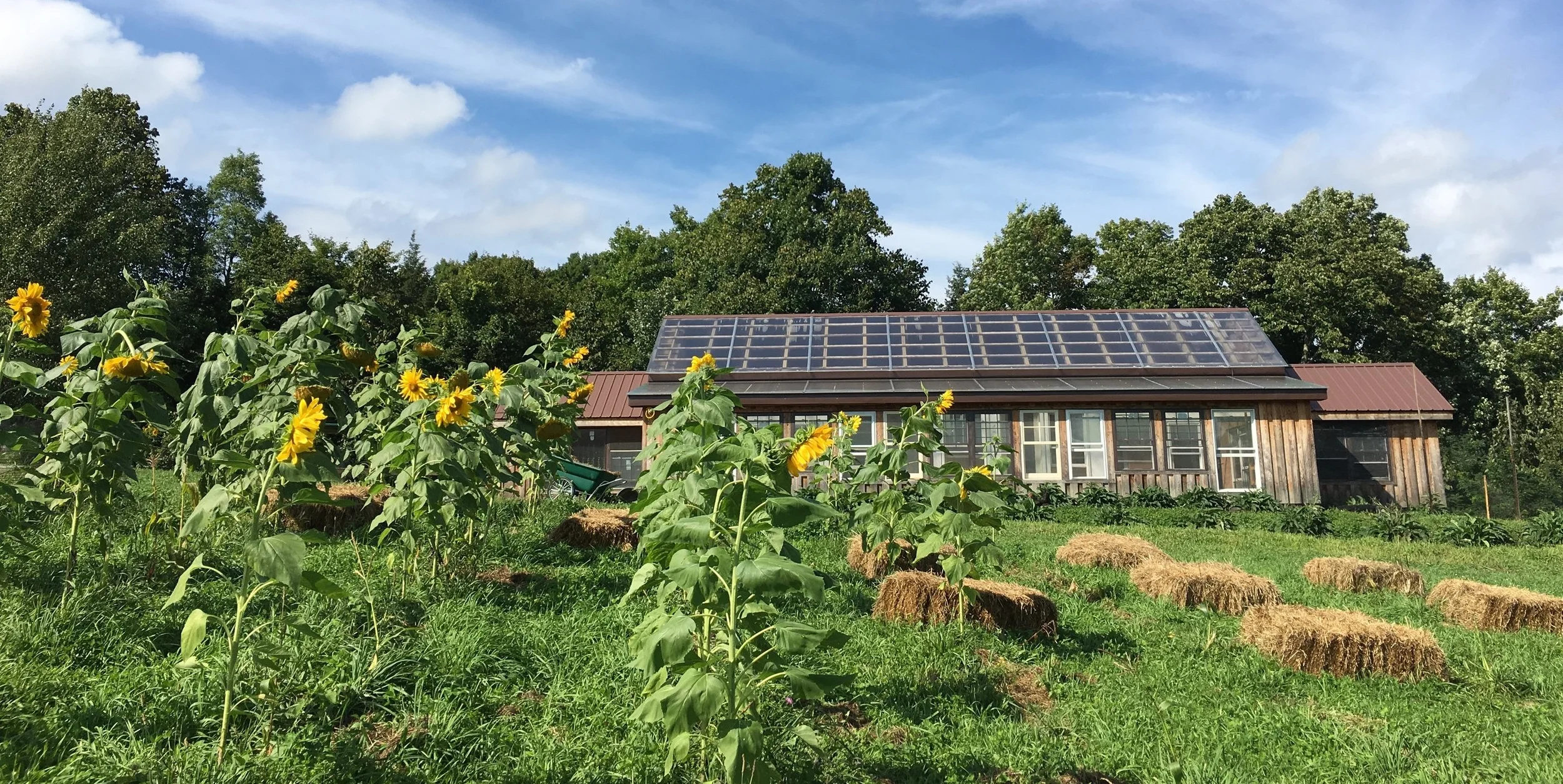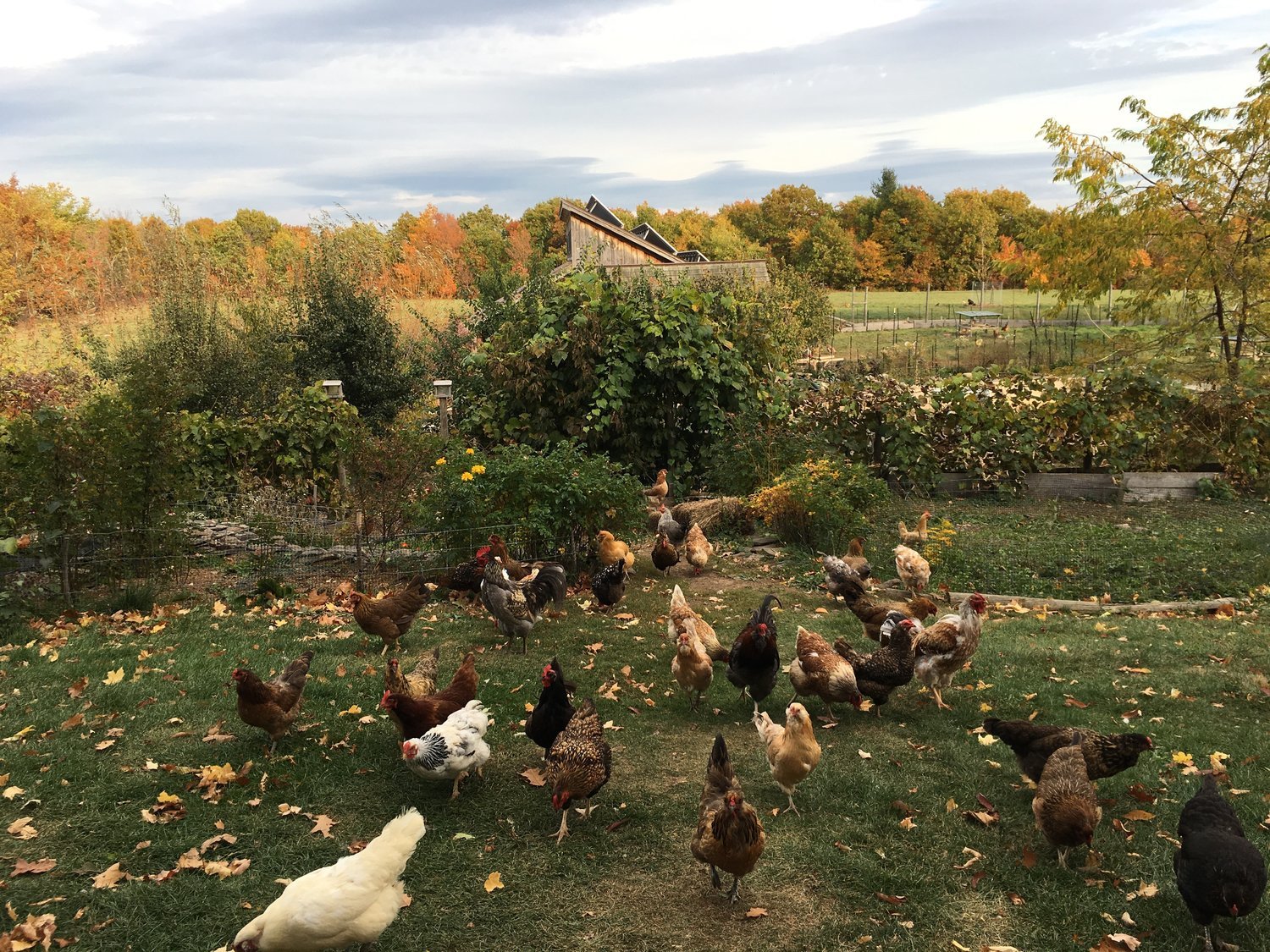That Was Then
Then was 2008, four years after retiring from teaching in Brooklyn and purchasing 15-acre hilltop property, with a south-facing house and a boring four-acre lawn. Through 40 windows there are 360-degree views of the tree-laden foothills of the Catskills in an upstate, barely surviving, dairy farm area. I quickly named this could-be paradise Skyhill because wherever I strolled, I seemed to walk into a companion sky, never needing to look up.
The deep well water was delicious, mineral-rich and chemical-free, near the headwaters of the Mohawk River valley. Privacy was 100%; not another home in view and a dramatically long curving driveway led uphill to this retreat. At night you could hear the frogs and crickets, watch the multitude of bats eat insects, and see or fireflies display their star-lights.
After several years lobbying in Albany to initiate awareness related to both GMOs and climate change, and, at the same time, managing some house repairs and renovations in this too big, three-story, five-bedroom abode, I was ready to pay more attention to the lawn. Providing housing for interns solved both the too big house and too empty lawn problems. Once the barn, laying hens, and multiple gardens were begun in earnest, that work was slowly using every NYC pension penny (after the proceeds from city house sale were finished). The rationale is solid; “bank” your funds securely and purposefully into safe land and food, and into protecting Nature.
By 2012 there were over 300 hens and far too many exquisite roosters, all hatched from four generations of two dozen heritage breeds fed only on organic grain, grazing and kitchen leftovers. Hardly a look-alike. Beauty and contentment everywhere. And eggs.
After guiding a friend through the procurement of a conservation easement to protect her 40-acre property (from future development) before selling it, she convinced me to become its buyer. I agreed that a smaller, one-story house was appropriate given my age, and my daughter and I purchased Falling Water, which we named for its 16 ft waterfall that separated the front four-acre lawn from the back 36 acres of woods and meadow.
So, it became part of Skyhill Egg Farm once its (can you guess?) four-acre lawn was converted into a barn, multi-purposed greenhouse, orchard, and permaculture garden of fruit trees, shrubs, herbs and vegetables. Four years later I moved to Falling Water. More garden, more barn and greenhouse space, and the background sound of a waterfall, which was a two -minute stroll from the house.
This is Now
It’s 2023 and these two start-ups are finished-up, and it’s time to retire once again and be cared for by my daughter in another state. I will take a few fertile eggs with me. As I slowly prepare to move, there are still many chickens here helping me supply a local food bank with one of Nature’s most nutrient-dense foods. Our chickens’ eggs are the only eggs available to this large food bank amid yet another national egg shortage. (Btw, it’s the firm conviction of Skyhill chickens that killing 60 million hens in a few months to prevent the spread of bird flu is cruel and senseless. And, furthermore, that factory farms are horrible. That egg shortages need not happen given how generous laying hens everywhere are. That small farms are, without doubt, totally preferred.)
Our Message
Left behind will be two “here and ready” properties, soon for sale. Both now have all the infrastructure needed to relax and enjoy work toward nurturing Nature as it struggles against what’s been called The Great Poisoning — of water, air, soil and food. There is much to love and protect, and photosynthesis is the best way to heal and protect all life. The mantra of climate victory gardens everywhere: Be Nature, grow diversity without toxins.
Plans unfulfilled at Skyhill include hatching organic chicks for sale; bartering or selling organic compost; growing year-round worms/chicken protein in our greenhouse; growing a tree nursery simply by transplanting saplings; growing mushrooms in the shaded moist soil by the waterfall. And more.
This is an invitation to become our Skyhill model of lawn transformed to chickens, eggs and gardens, especially offered to fellow urban retirees with pensions and a readiness to fully experience a sense of place and permanence (and sky) a city doesn’t know.
We taxpayers must subsidize food twice. We must balance mistaken USDA subsidies to huge industrial operations with our own purchasing and, somehow, produce harm-free, nutrient-dense food—by our investments in farmland to become small-scale farmers or rent to farmers needing a place to grow. Small farms subsidized with investments of love.




